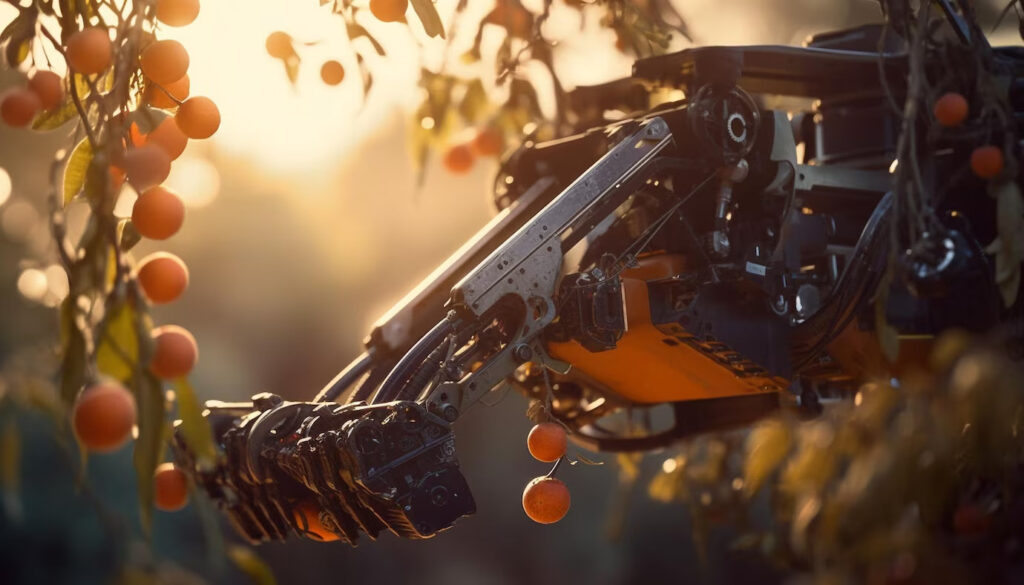
Introduction
With the continuous advancements in technology, the utilization of Artificial Intelligence (AI) in various industries has become the norm. Among these sectors, agriculture stands to greatly benefit from the integration of AI. By incorporating AI into agricultural practices, farmers and stakeholders can enhance productivity, reduce costs, and ensure sustainable food production. This article explores the potential of AI in agriculture, highlighting its impact on various aspects of the industry.
Improved Crop Management
- AI can transform crop management by offering real-time analysis of soil conditions, climate patterns, and ideal harvesting periods.
- Machine learning algorithms can handle extensive data, enabling farmers to make knowledgeable choices concerning watering, fertilizing, and applying pesticides.
- Smart sensors and drones equipped with AI technology can gather data on crop health, enabling early disease detection and targeted intervention.
Precision Agriculture
- The implementation of AI enables precision agriculture, where farmers can apply resources precisely, resulting in higher yields and reduced environmental impact
- AI-powered systems can analyze satellite imagery to assess soil nutrient levels, detect pest infestations, and optimize planting patterns
- Autonomous machines equipped with AI algorithms can perform tasks such as planting, harvesting, and monitoring crops efficiently, leading to increased efficiency and reduced labor costs.
Livestock Management
- AI can be utilized in livestock management to monitor animal health, improve breeding programs, and optimize feeding practices
- Sensor technologies combined with AI algorithms enable real-time tracking of biometric data, allowing farmers to detect diseases and implement timely interventions
- Machine learning algorithms can analyze historical data to identify genetic traits for breeding programs, leading to the production of healthier and more productive livestock.
Market Insights and Supply Chain Optimization
- AI technology can assist farmers in understanding market trends, predicting demand, and optimizing the supply chain
- By analyzing historical data and consumer behavior patterns, AI algorithms can provide valuable insights into pricing strategies and future market demands
- Optimization algorithms can help in streamlining transportation and distribution processes, reducing waste and minimizing delivery times.
Challenges and Opportunities
As with any technology, the implementation of AI in agriculture also comes with challenges and considerations. Some potential challenges include data privacy, initial investment costs, and the need for technical expertise. However, the opportunities that AI presents in terms of sustainability, increased productivity, and cost savings outweigh these obstacles.
Conclusion
The upcoming of AI in farming is hopeful. By combining AI technology into diverse aspects of agriculture, farmers can enhance resource utilization, enhance decision-making processes, and establish a more sustainable and effective agricultural ecosystem. Accepting AI will not only advantage farmers and customers but also contribute to worldwide food security and ecological preservation.
